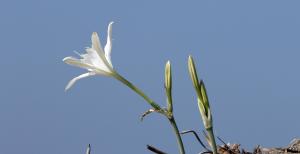
Grants
Biodiversity conservation and ecosystem services
Plastic Free Shores Plastic Free Waters
25,067.50 GBP awarded
Status: Completed
Project duration: May 2024 – December 2024
We are delighted to be supporting Plastic Free Shores, Plastic Free Waters Project for another year, thanks to generous support from Conservation Collective and Depeche Mode & Hublot partnership.
Challenge
Plastic pollution poses a grave concern in Türkiye, as evident by the prevalent sight of improperly discarded plastic waste. There is an urgent need to address the growing plastic pollution along the coastlines as indicator areas for land- and marine-based pollution. The breakdown of plastic waste not only disrupts the delicate balance of marine life but also poses significant public health risks as these pollutants enter the food chain. Creating a plastic-free environment involves increasing public awareness and encouraging individuals to minimize waste rather than depending solely on local authorities for waste removal. This strategy relies on cultivating each person’s conscience and sense of responsibility.
💡 The Approach
Phase I: Awareness & Action
-
Beach clean-ups with interactive educational booths
-
Volunteer training for youth on the impacts of plastic pollution
-
On-site questionnaires to assess public perceptions
-
Awareness campaigns via traditional and social media
- Production of a project video and a press-released impact report
Key Deliverables:
-
🎨 Visual Materials: 3 posters + 1 brochure on single-use plastics
-
📋 Survey Findings:
-
65.5% of beach users did not consider cigarette butts as litter
-
58.2% did not know cigarette filters contain plastic
-
Littering was often justified by the assumption that “someone else will clean it up.
-
🔁 Phase II: Deeper Engagement
This phase focused on habit change and long-term impact through community events and creative outreach:
-
🏖️ Public Beach Events: Clean-ups, awareness booths, SUP reduction
-
🧠 Training Sessions: Plastic literacy & peer education
-
🧵 Workshops for Families: Upcycling & zero-waste crafts
-
📘 New Resource: Plastic-Free Living booklet for individuals and businesses
A highlight was introducing a deposit return machine — shipped from Norway — which sparked local interest in Türkiye’s evolving recycling infrastructure.
Update Summer 2024: Learn more about their impact here!
📊 Impact Highlights
🗑️ 67 kg of plastic removed
♻️ 80 kg of waste sent to recycling
👥 1,400+ people reached, including 452 children
🔄 750 people reported changing at least one daily habit
📚 40-page guidebook launched: Towards a Plastic-Free Future
🌱 19 kg of single-use plastics prevented at events through mindful planning
About the organisation: EKAD—Ecological Research Association is an NGO founded in 2003 by academics working on biodiversity and nature conservation. Since then, EKAD has established harmonious and fruitful cooperation with universities, ministries, municipalities, other NGOs, and private enterprises. EKAD continues its mission mainly through sea turtle monitoring and conservation projects, joined by many national and international volunteers yearly, to provide the best example of sustainable biodiversity.
